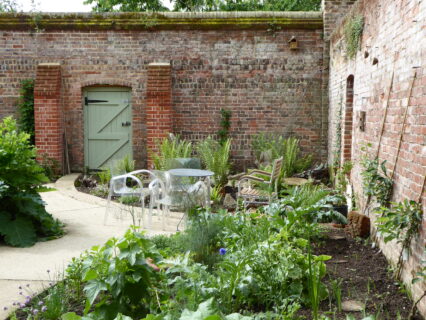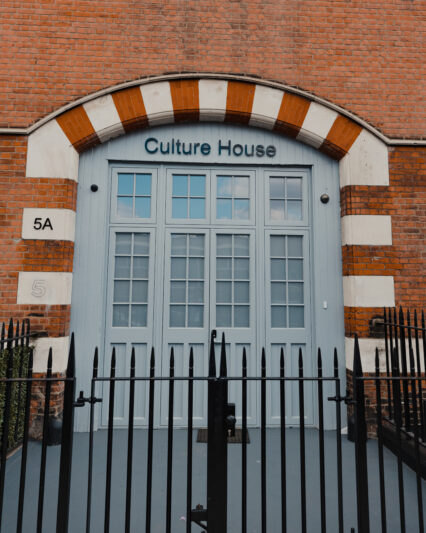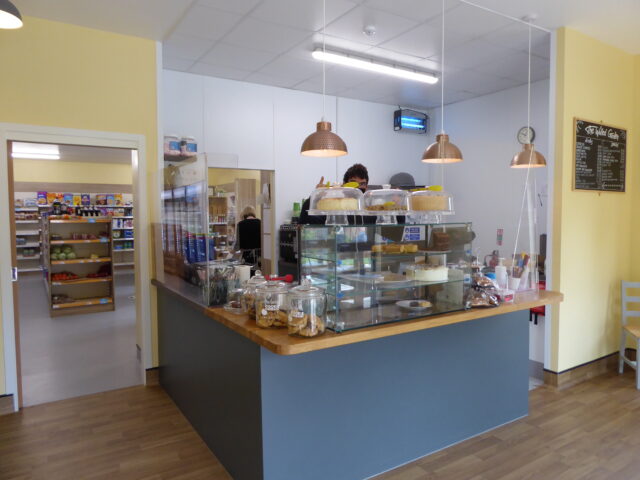Hope beyond Covid: A Q&A with two of our Community Spaces partners
Our Community Spaces programme is designed to help local organisations make their work more financially sustainable through interest-free loans of up to £50,000.
Since 2018 we’ve awarded £2.3m to 37 organisations that focus on creating accessible and sustainable spaces for people to enjoy. But when Covid hit, many of our partners were faced with unexpected challenges that would impact their cash flow and long-term viability.
We wanted to react to these challenges and co-operate with our partners through new flexible funding, aligned to the commitments we made in this statement.
At the start of 2021, we offered all our Community Spaces partners the opportunity to apply for extra support grants of up to £10,000. Grants could be used in whatever way they saw fit, and we’d assess applications on a monthly rolling basis so money could get where it needed to be quickly.
Walled Garden project (WG) and Anti-Tribalism Movement (ATM) are just two of our partners that have been awarded these grants so far. Our 360Giving page lets you see every grant we’ve made as the Foundation.
We chatted to them to find out the impact of our grants and their hopes for their work beyond the pandemic…

The Walled Garden project 
Culture House, home to Anti-Tribalism Movement
Co-op Foundation (CF): What were your plans when you applied for your original Community Spaces loan?
WG: The Community Spaces Loan was the first funding commitment we’d had for the Walled Garden project. This was significant in boosting our confidence and credibility when it came to applying for other funding opportunities.
With the loan and other fundraising activities, we planned to build and fit out a shop and café within the grounds of the walled garden and refurbish the existing dilapidated outbuildings to provide toilet facilities and storage. This would create a community hub where locals could come together, shop for essentials, and relax in the café space.
ATM: At the beginning of 2020, we signed a 25-year lease for the revival of an abandoned empty building for community purposes and agreed with local authorities to refurbish the building in exchange for a 12-year free rent period.
The loan from Co-op Foundation provided critical funds to help us with the refurbishment of the building. In the longer term, we saw the potential of using the space for generating unrestricted income for the charity via conference and office facility hire. This income would ensure we had a permanent place to grow our organisation and additional community engagement to address the issues surrounding of tribal identities among Somalis in the UK.
CF: How did Covid impact your organisation?
WG: In the first instance we had to reduce seating capacity in the café for social distancing, however, unfortunately we then had to close the café and serve on a take-away basis only. Fortunately, we were able to keep the shop open as an essential service. Covid meant that we had to re-design the layout of our shop to create a one-way system and introduce counter screens. These changes were a cost to the business through reduced income or actual expense at a time when we’d only been open a few weeks.
ATM: Before Covid, we were generating a monthly income of £4,000 from venue hire. However, when Covid guidelines came into place, we had to close so we could ensure our staff and service users were safe. We lost income over 12 months that would normally cover rent, salaries and contributions to our reserves.
This loss is substantial for us and the effects are already beginning to show. We’ve recently had to dip into money we planned to use for safeguarding the future of the charity just to keep going.

CF: What impact has the grant made?
WG: There is a paved terrace outside the café, which looks onto the garden. We’re going to use the grant to improve this to become a more ‘all-weather’ facility and increase our outdoor seating capacity.
We had little time to create financial stability when Covid hit, so knowing this funding was available when we needed it was a huge relief for everyone involved. Relief has since turned to excitement as the necessary improvements will greatly enhance the café facility and help us achieve our vision.
ATM: When we heard about the availability of an extra £10,000 grant we were extremely happy, pleased and grateful. The grant will alleviate some of the financial challenges we’ve faced and will allow us to strengthen our governance so we are equipped for any future challenges we face.
CF: What are your hopes for the future?
WG: Our vision is that the Walled Garden becomes an established community hub. During the pandemic, people have grown more appreciative of the outdoors, of nature, and of what is on their own doorstep. We hope this means that they will be more inclined to visit the garden and use the facilities.
While it has been challenging, the learning experience has undoubtedly been for the best. We hope that the project can now get back on course and achieve its aims.
ATM: We’re looking forward to re-opening our freshly refurbished community hub for engagements, community nourishment and celebrations once all Covid-19 restrictions are lifted.
Read more about how we’ve supported our Community Spaces partners during Covid in this blog from Ella, our Funding and Partnerships Manager.
No further funding is available for this programme right now, but you can be the first to find out about new funding by signing up to our blog or following us on Twitter.